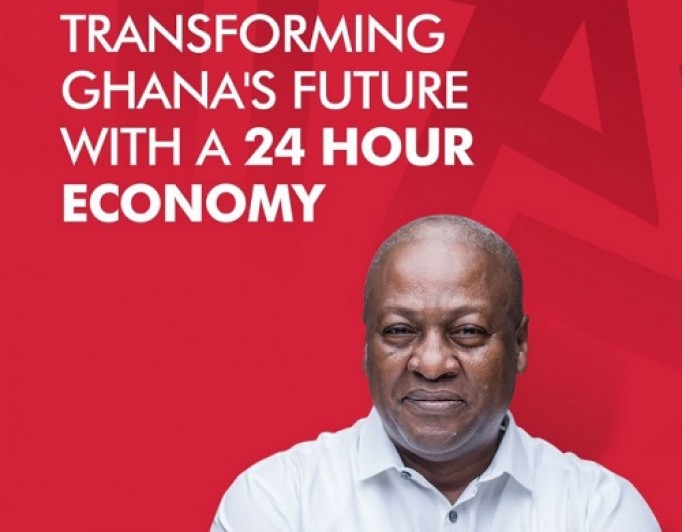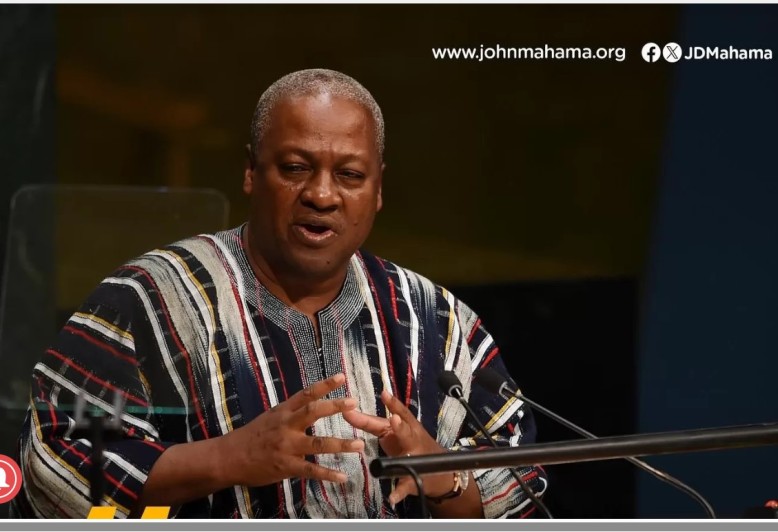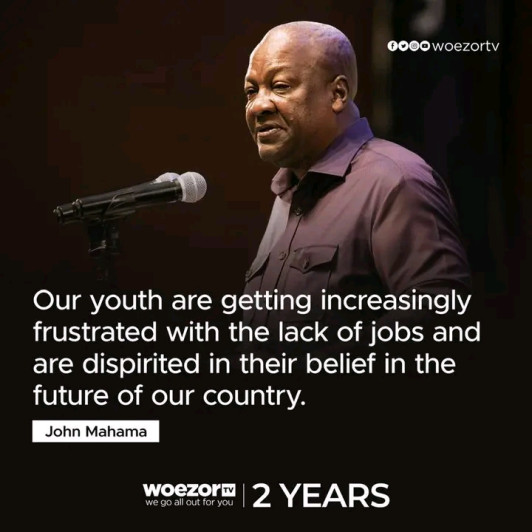
The need of policy framework for a 24-Hour economy in Ghana
Introduction
Developing a policy framework for a 24-hour economy in a developing nation like Ghana is a multifaceted task that requires careful consideration of various sectors. This article outlines a tailored policy framework addressing key areas, including infrastructure development, labour and employment, business support, healthcare, retail and hospitality, entertainment and culture, public services, education, regulatory framework, technology and innovation, monitoring and evaluation, public awareness and engagement, and sustainability and environmental considerations.
1. Infrastructure Development:
a. Transportation: Enhancing Connectivity for 24-Hour Mobility
Developing a robust transportation framework is crucial for facilitating a 24-hour economy. This involves not only expanding existing transportation networks but also placing a strategic emphasis on improving public transport. The goal is to create a system that ensures safe, convenient and efficient travel for both workers and consumers during all hours of the day.
Investments should be directed toward upgrading and expanding public transportation infrastructure, including buses, trains, and other modes of transit. Prioritizing late-night services and optimizing routes can enhance accessibility, making it easier for individuals to commute to and from work, as well as participate in nighttime activities.
Furthermore, incorporating smart technologies, such as real-time tracking and scheduling apps, can enhance the efficiency of public transportation, providing real-time information to commuters and contributing to a seamless 24-hour mobility experience.
b. Lighting, Safety and Security: Creating Secure Night-time Environments
A critical aspect of a thriving 24-hour economy is ensuring public safety during nighttime hours. Strengthening safety measures through improved street lighting and enhanced security in public spaces is essential. Adequate lighting not only contributes to a sense of security but also promotes visibility, reducing the risk of accidents and criminal activities.
Investments should be made in energy-efficient lighting solutions that illuminate public areas effectively. Additionally, implementing smart lighting systems that adjust brightness based on usage patterns can contribute to energy conservation. Collaborating with local law enforcement and community organizations can aid in developing comprehensive safety plans, including increased patrols and community engagement initiatives.
Recruitments of more state security to create safer communities for economic activities to thrive is also crucial in this regard. For instance, the Ghana Police Service, with a staff strength of 45717 (as of September 2023) and a 2023 projected Ghana’s population of 34,383,427 representing a police: population ratio of 1: 752 falls far short of the globally required standard of 1: 500 ratio.
To meet this standard, more than 32,000 extra officers need to be recruited into the police service. Similar numbers may apply to other security and emergency services providing agencies. Relatedly, the deployments of real time cameras across all economic activity zones to aid in security provision and law enforcement cannot be underestimated in the milieu of not just ensuring enabling environment for a 24-hour economy, but also help resolve the unemployment conundrum, provide incentives to businesses that would otherwise spend extra in security provision, and provide safer communities for all.
Public-private partnerships can play a significant role in supporting security measures from state actors. For instance, businesses and local authorities can collaborate to install surveillance systems and employ security personnel, contributing further to the overall safety of the community during nighttime hours.
2. Labor and Employment:
a. Labor Regulations: Fostering Workplace Flexibility for a 24-Hour Workforce
Establishing flexible labour regulations is fundamental to accommodating the diverse work shifts inherent in a 24-hour economy. The regulatory framework should encourage businesses to adopt alternative work schedules, such as night shifts and flexible hours, to meet the demands of a non-traditional working environment.
This involves working closely with labour unions like the TUC, business associations like AGI, and legal experts to create a regulatory environment that supports adaptability in the workforce. Introducing policies that allow for compressed workweeks, telecommuting options, and flexible leave arrangements can contribute to a healthier work-life balance for employees engaged in 24-hour sectors.
In addition, the regulatory framework should address issues related to overtime compensation, hourly based compensations in some instances, workplace safety, and employee rights to ensure fair and equitable treatment for all workers. Regular reviews and updates to labour regulations will be necessary to keep pace with the evolving nature of the 24-hour economy.
b. Training and Skill Development: Empowering the Workforce for Nighttime Industries
Investing in skill development programs is imperative to equip the workforce with the specialized skills required for engagement in 24-hour economy sectors. This involves collaboration between government entities, educational institutions, and businesses to identify the specific skill sets needed in nighttime industries.
Developing vocational training programs, apprenticeships, and certification courses tailored to the requirements of night-shift work can enhance the employability of individuals in these sectors. Public-private partnerships can play a pivotal role in designing and implementing these programs, ensuring that they align with the evolving needs of the 24-hour economy.
Furthermore, fostering a culture of continuous learning and professional development is essential. Encouraging businesses to provide opportunities for ongoing training and upskilling will contribute to a dynamic and adaptable workforce, capable of meeting the challenges of a 24-hour work environment.
3. Business Support:
a. SMEs: Nurturing Small Businesses for Extended Operations
Providing incentives and support for Small and Medium Enterprises (SMEs) is key to extending operating hours and fostering economic growth. SMEs are often the backbone of a nation’s economy and creating an environment conducive to their participation in the 24-hour economy is vital.
Incentives can include tax breaks, financial grants, and streamlined regulatory processes for SMEs willing to operate during unconventional hours. Government-backed programs that offer financial support and mentorship can empower SMEs to expand their operating hours and tap into the potential of the 24-hour economy.
Additionally, collaboration with industry associations and chambers of commerce can facilitate the development of support networks for SMEs. Creating platforms for knowledge-sharing and collaboration can help SMEs navigate the challenges and opportunities associated with extended operating hours.
b. Business Incubators: Nurturing Night-Time Startups for Economic Innovation
Establishing night-time economy-focused business incubators and accelerators is essential for supporting startups in these sectors. Incubators provide a structured environment where new businesses can receive mentorship, resources, and networking opportunities to thrive in the dynamic landscape of the 24-hour economy.
Government initiatives can involve setting up dedicated spaces for night-time startups, equipped with the necessary infrastructure and resources. Collaborating with industry experts, investors, and successful entrepreneurs can enrich the mentorship component of these programs, guiding startups through the unique challenges of operating during non-traditional hours.
Furthermore, financial incentives, such as grants and low-interest loans, can be made available to startups demonstrating innovative solutions and contributing to the diversification of the 24-hour economy. The goal is to create a supportive ecosystem that nurtures entrepreneurship and drives economic innovation in nighttime industries.
4. Healthcare:
a. 24-Hour Clinics: Ensuring Accessible and Timely Healthcare Services
Ensuring round-the-clock availability of healthcare services is paramount for the success of a 24-hour economy. This involves establishing and maintaining 24-hour clinics that focus on providing urgent care and emergency services during non-traditional hours.
Infrastructure investments should be directed towards creating modern and well-equipped 24-hour clinics strategically located to serve both urban and rural populations. Collaborating with healthcare professionals and organizations to develop standardized protocols for night-time healthcare delivery can ensure consistency and quality of services.
Furthermore, incentivizing healthcare providers including pharmaciesto operate during extended hours and offering financial support for the establishment of 24-hour clinics can contribute to the overall accessibility of healthcare services. Public awareness campaigns can educate citizens about the availability of these services, encouraging timely and appropriate utilization.
b. Telemedicine: Expanding Healthcare Access Beyond Traditional Hours
Promoting telemedicine and e-health solutions is crucial for expanding healthcare access beyond traditional working hours. This involves leveraging digital technologies to facilitate remote consultations, diagnosis, and prescription services during the night.
Infrastructure investments should focus on building robust digital platforms that enable secure and seamless telemedicine interactions. Collaborating with telecommunications companies and technology providers can enhance the reach and reliability of telehealth services.
Educational campaigns targeting both healthcare providers and the public can raise awareness about the benefits and accessibility of telemedicine during non-traditional hours. Additionally, regulatory frameworks should be adapted to support the ethical and secure implementation of telemedicine, ensuring patient privacy and data security.
Expanding telehealth services not only enhances healthcare accessibility but also contributes to the overall efficiency and resilience of the healthcare system in the context of a 24-hour economy.
5. Retail and Hospitality:
a. Extended Hours: Cultivating a Vibrant 24-Hour Marketplace
Encouraging retail businesses and restaurants to extend their operating hours is crucial for fostering a dynamic and thriving 24-hour economy. This involves creating a supportive environment that incentivizes businesses to adapt their schedules to meet the demands of consumers during unconventional hours.
Government initiatives can include financial incentives, such as tax breaks or subsidies, for businesses willing to operate during extended hours. Collaboration with industry associations can facilitate the development of best practices and guidelines for implementing extended operating hours, ensuring a seamless transition for businesses.
Moreover, engaging with local communities and conducting consumer surveys can provide insights into the specific needs and preferences of nighttime shoppers and diners. This information can inform targeted marketing campaigns and events, creating a buzz around extended hours and attracting a diverse clientele.
b. Licensing: Streamlining Processes for Night-Time Businesses
Simplifying licensing requirements and reducing bureaucratic hurdles for businesses operating at night is essential for promoting a vibrant 24-hour economy. This involves a comprehensive review of existing regulations and the development of streamlined processes tailored to the unique needs of nighttime businesses.
Government agencies should collaborate with industry representatives and legal experts to identify and eliminate unnecessary licensing requirements. Creating a user-friendly online platform for license applications and renewals can expedite the process for businesses, reducing administrative burdens.
In addition, periodic reviews of licensing regulations should be conducted to ensure that they remain aligned with the evolving nature of the 24-hour economy. This adaptive approach enables authorities to address emerging challenges and capitalize on opportunities for growth in the retail and hospitality sectors.
6. Entertainment and Culture:
a. Nightlife Districts: Fostering Cultural Hubs for Nighttime Activities
Developing and promoting designated nightlife and cultural districts is a strategic approach to infuse vitality into the nighttime economy. These districts should be designed to showcase a diverse array of entertainment, music, and cultural events, catering to the varied interests of the community.
Government investment in the development of infrastructure and amenities within these districts can create attractive spaces for both locals and tourists. Collaborating with urban planners, architects, and cultural organizations can ensure that these districts are aesthetically pleasing, safe, and conducive to a vibrant nightlife.
Community engagement is crucial in the planning process, involving local businesses, artists, and residents to ensure that the districts reflect the unique identity of the community. This collaborative approach fosters a sense of ownership and pride among stakeholders, contributing to the long-term sustainability of nightlife districts.
b. Security Measures: Ensuring Secure Nighttime Entertainment
Implementing robust safety measures in nightlife districts is paramount to creating a secure environment for night-timeentertainment activities. This involves a multi-faceted approach, including increased police presence, well-lit public spaces, and strategic design elements that prioritize safety and security.
Collaboration with law enforcement agencies is essential to develop comprehensive event security and safety plans for nightlife districts. This can involve the deployment of community policing strategies, ensuring that law enforcement officers engage positively with the community to build trust and enhance security.
Technological solutions, such as surveillance cameras and emergency call boxes, can be integrated into the infrastructure of nightlife districts to enhance overall safety. Regular safety audits and community feedback mechanisms should be implemented to continuously assess and improve safety measures in response to evolving needs.
7. Public Services:
a. Public Transport: Enabling Seamless Mobility Around the Clock
Expanding public transport options during nighttime hours is fundamental to ensuring accessibility for workers and consumers engaged in the 24-hour economy. This involves optimizing existing routes, introducing additional services, and leveraging technology for real-time scheduling and tracking.
Government investment in public transportation infrastructure should prioritize safety, reliability, and convenience. Collaborating with transport authorities and private operators can ensure that the expanded services meet the specific needs of nighttime commuters.
Public awareness campaigns can educate citizens about the extended public transport options, encouraging the shift towards sustainable and accessible transportation during non-traditional hours. Integrating various modes of transportation, such as buses, trains, and shared mobility services, creates a comprehensive network that serves the diverse needs of the community.
b. Emergency Services: Ensuring Round-the-Clock Safety and Assistance
Strengthening emergency services, including fire departments, police, and medical services, to be fully operational 24/7 is critical for maintaining public safety in a 24-hour economy. This involves strategic resource allocation, training programs, and technological enhancements to improve response times.
Government investment should focus on modernizing emergency response infrastructure and equipment, ensuring that personnel are well-equipped to handle nighttime emergencies. Collaborating with healthcare providers to integrate emergency medical services into the overall emergency response system enhances the effectiveness of these services.
Public awareness campaigns can educate citizens about emergency service availability and the importance of prompt reporting. Additionally, community engagement initiatives, such as neighbourhood watch programs, can enhance the collaborative effort between emergency services and the community, fostering a sense of shared responsibility for safety.
8. Education:
a. Continuing Education: Empowering Nighttime Workers Through Learning
Offering adult education and vocational training programs specifically tailored for individuals working during unconventional hours is essential for empowering the workforce in the 24-hour economy. This involves collaboration between educational institutions, employers, and industry associations to identify skill gaps and training needs.
Government-sponsored programs can provide financial support for adults seeking to further their education while working night shifts. Flexible scheduling and online learning options can accommodate the diverse schedules of nighttime workers, ensuring that they have access to educational opportunities.
Collaboration with employers to develop training programs that align with the needs of nighttime industries ensures that the workforce is equipped with relevant and up-to-date skills. Ongoing assessment and adaptation of these programs based on industry trends contribute to a workforce that remains competitive in the evolving 24-hour economy.
b. Flexible Learning: Adapting Education to Non-Traditional Schedules
Promoting flexible and online learning options is crucial to accommodate learners with non-traditional schedules in the 24-hour economy. This involves leveraging digital technologies and innovative educational models to provide accessible and personalized learning experiences.
Government initiatives can include the development of online platforms that offer a variety of courses catering to the diverse interests and career paths of individuals in nighttime industries. Collaborating with educational technology providers and industry experts ensures that the content is relevant and engaging.
Financial support, such as scholarships or subsidies for night-shift workers pursuing education, can further incentivize participation in flexible learning programs. Continuous monitoring and assessment of the effectiveness of these programs, coupled with feedback mechanisms, enable adjustments to meet the evolving needs of learners in the 24-hour economy.
9. Regulatory Framework:
a. Zoning Laws: Fostering Mixed-Use Development for 24-Hour Activities
Reviewing and adjusting zoning regulations is pivotal for creating an environment that accommodates 24-hour activities. This involves a comprehensive assessment of existing zoning laws to identify areas where mixed-use development can be promoted, fostering a seamless integration of residential, commercial, and recreational spaces.
Government collaboration with urban planners and architects is essential to redefine zoning regulations that allow for the creation of vibrant, mixed-use districts. Special attention should be given to designating areas where 24-hour activities, such as entertainment and essential services, can coexist harmoniously with residential zones.
Public participation in the zoning process ensures that the diverse needs of the community are considered. Holding public hearings, gathering feedback, and involving citizens in the decision-making process contribute to the development of zoning laws that reflect the collective vision for a 24-hour economy.
b. Safety and Licensing: Upholding Stringent Standards for Citizen and Worker Well-being
Ensuring stringent safety and licensing standards is paramount for safeguarding the well-being of citizens and workers participating in the 24-hour economy. This involves a robust regulatory framework that addresses safety protocols, licensing requirements, and regular inspections to maintain compliance.
Collaboration with industry experts and regulatory bodies is crucial to continually assess and update safety standards based on industry advancements and emerging risks. Government agencies should engage in regular dialogue with businesses and workers to gather feedback on the effectiveness of safety measures and licensing procedures.
Additionally, public awareness campaigns can educate citizens about the importance of adhering to safety guidelines and licensed establishments. Collaborating with industry associations to develop training programs that emphasize safety protocols contributes to a culture of responsibility and accountability within the 24-hour economy.
10. Technology and Innovation:
a. Digital Infrastructure: Catalysing E-Commerce, Telecommuting, and Online Services
Investing in robust digital infrastructure is a cornerstone for supporting the technological demands of the 24-hour economy. This involves upgrading and expanding digital networks to ensure seamless connectivity, particularly in areas such as e-commerce, telecommuting, and online services.
Government collaboration with technology providers and telecommunications companies is essential to develop a comprehensive digital infrastructure strategy. This includes investments in high-speed internet access, data centres, and cybersecurity measures to facilitate secure online transactions and communication.
Moreover, public-private partnerships can be forged to incentivize businesses to adopt digital technologies. This can involve providing tax incentives or grants for the implementation of e-commerce platforms, telecommuting tools, and other digital solutions that enhance productivity in the 24-hour economy.
b. Startup Support: Nurturing Technological Innovation for 24-Hour Activities
Providing incentives for technology startups that develop solutions for the 24-hour economy is crucial for fostering innovation in nighttime industries. This involves creating a supportive ecosystem that encourages entrepreneurship and facilitates the growth of technology-driven businesses.
Government initiatives can include grants, tax breaks, and access to incubators specifically tailored for startups focusing on the 24-hour economy. Collaboration with venture capital firms and industry experts can provide startups with mentorship and guidance, accelerating their development and market entry.
Furthermore, public-private collaboration can result in the establishment of innovation hubs and accelerators focused on supporting technology startups in the nighttime economy. These hubs can serve as a nexus for collaboration, idea exchange, and the development of cutting-edge solutions that contribute to the overall advancement of the 24-hour economy.
11. Monitoring and Evaluation:
a. Data Collection: Establishing a System for Informed Decision-Making
Establishing a comprehensive system for collecting data on the performance of the 24-hour economy is essential for informed decision-making. This involves creating a framework that gathers data on economic indicators, safety metrics, and public feedback to assess the impact of policies and initiatives.
Government collaboration with data analytics experts and research institutions is crucial to develop data collection methodologies that provide meaningful insights. Implementing technology-driven solutions, such as data dashboards and analytics tools, can streamline the collection and analysis of relevant information.
Regular reporting and dissemination of data to the public contribute to transparency and accountability. Additionally, engaging with businesses and workers to solicit firsthand feedback ensures that the data collected reflects the experiences and perspectives of those directly involved in the 24-hour economy.
b. Periodic Reviews: Adapting Policies to Evolving Needs
Conducting periodic reviews of the policy framework is essential to ensure its ongoing effectiveness and relevance to the evolving needs of the economy. This involves scheduled assessments of policy outcomes, stakeholder feedback, and adjustments based on emerging trends and challenges.
Government collaboration with independent evaluators, industry experts, and stakeholders ensures an unbiased and comprehensive evaluation process. The findings from these reviews should inform the adaptation of policies, regulatory frameworks, and support programs to address evolving dynamics within the 24-hour economy.
Public involvement in the review process, through surveys, town hall meetings, and consultation sessions, provides valuable input from the community. This participatory approach ensures that the policies reflect the collective vision and aspirations of the diverse stakeholders engaged in the 24-hour economy.
12. Public Awareness and Engagement:
a. Campaigns: Communicating the Benefits of the 24-Hour Economy
Launching public awareness campaigns is instrumental in informing citizens about the benefits of the 24-hour economy and how they can actively participate. This involves developing targeted and compelling messages that highlight the positive impact of extended operating hours on economic growth, job creation, and community vitality.
Government collaboration with marketing and communication experts ensures that the campaigns resonate with diverse audiences. Utilizing various media channels, including social media, television, and community events, enhances the reach and effectiveness of awareness campaigns.
Incorporating success stories, testimonials, and case studies into the campaigns can provide tangible examples of the positive outcomes associated with a thriving 24-hour economy. Moreover, collaborating with influencers and community leaders can amplify the messaging and foster a sense of community pride.
b. Stakeholder Engagement: Inclusive Decision-Making for Policy Implementation
Involving businesses, workers, and local communities in the policy implementation process is essential to address their needs and concerns. This collaborative approach ensures that policies are tailored to the unique characteristics of different sectors within the 24-hour economy.
Establishing advisory committees and forums for stakeholder engagement facilitates open dialogue and information exchange. Regular meetings, focus groups, and consultations provide opportunities for stakeholders to express their perspectives, enabling policymakers to make informed decisions.
Moreover, government agencies can create feedback mechanisms, such as suggestion boxes, online surveys, or public forums, to gather continuous input from stakeholders. Actively responding to concerns and incorporating constructive feedback fosters a sense of ownership and collective responsibility for the success of the 24-hour economy.
13. Sustainability and Environmental Considerations:
a. Energy Efficiency: Promoting Responsible Energy Consumption
Encouraging businesses to adopt energy-efficient technologies and practices is fundamental in minimizing the environmental impact of extended operating hours. This involves the implementation of policies and initiatives that incentivize businesses to prioritize energy conservation and adopt sustainable energy sources.
Government collaboration with energy experts and environmental organizations can result in the development of energy efficiency guidelines tailored for the diverse sectors within the 24-hour economy. Incentive programs, such as tax credits or subsidies for the adoption of energy-efficient technologies, provide tangible benefits for businesses embracing sustainable practices.
Moreover, public awareness campaigns can educate businesses and consumers about the importance of energy efficiency in reducing carbon footprints. Highlighting success stories and best practices within the business community can inspire others to make environmentally conscious choices, contributing to a more sustainable 24-hour economy.
b. Waste Management: Implementing Sustainable Practices for Increased Waste
Developing sustainable waste management practices is crucial to address the inevitable increase in waste production associated with a 24-hour economy. This involves creating comprehensive strategies for waste reduction, recycling, and responsible disposal.
Government collaboration with waste management experts and environmental agencies is essential to design and implement effective waste management policies. This includes the establishment of recycling infrastructure, waste sorting facilities, and educational programs to promote responsible waste disposal practices.
Incentive programs can be introduced to encourage businesses to adopt sustainable packaging and reduce single-use items. Collaborating with industry associations and waste management companies can facilitate the development of industry-specific guidelines for reducing waste in the 24-hour economy.
Public engagement initiatives, such as community clean-up events and recycling drives, can raise awareness about the importance of responsible waste management. Additionally, educational campaigns can inform businesses and consumers about the environmental impact of their choices, fostering a sense of environmental stewardship within the community.
Continuous monitoring and assessment of waste management practices, coupled with adjustments to policies based on evolving technologies and best practices, contribute to the long-term sustainability of the 24-hour economy.
Conclusion
Developing a comprehensive policy framework for a 24-hour economy in a developing nation like Ghana requires a holistic approach. By addressing infrastructure, labour, business, healthcare, education, and various other sectors, Ghana can create an environment conducive to sustained economic growth and societal well-being through productivity and job creations. Continuous monitoring, stakeholder engagement, and a focus on sustainability are essential for the successful implementation and evolution of the policy framework.
About the author
Korsi Dzokoto, is the Director of Research & Policy Coordination at Upsilon Pi Delta Institute (UPDI), a people-focused think tank dedicated to addressing vital issues for Ghanaians, Africans, and the global community. The organization emphasizes people-centered policy advocacy for sustainable human development, prioritizing community engagement and amplifying the voices of individuals. Under Dzokoto’s leadership, UPDI conducts thorough research with a scientific approach, employing dedicated Research Fellows to provide accurate and insightful analyses for informed policy.
Disclaimer: "The views expressed on this site are those of the contributors or columnists, and do not necessarily reflect 24houreconomy.org’s position. 24houreconomy.org will not be responsible or liable for any inaccurate or incorrect statements in the contributions or columns here."
Share On Social Media
24-HOUR ECONOMY
Economy
Related News
News

24-Hour economy policy a major improvement on past fragmented initiatives – IMANI Africa
Read More
GPHA launches full 24-hour operations at Tema and Takoradi Ports in response to presidential directive
Read More

















